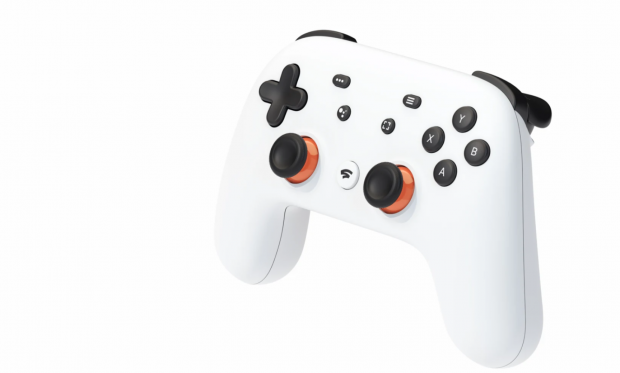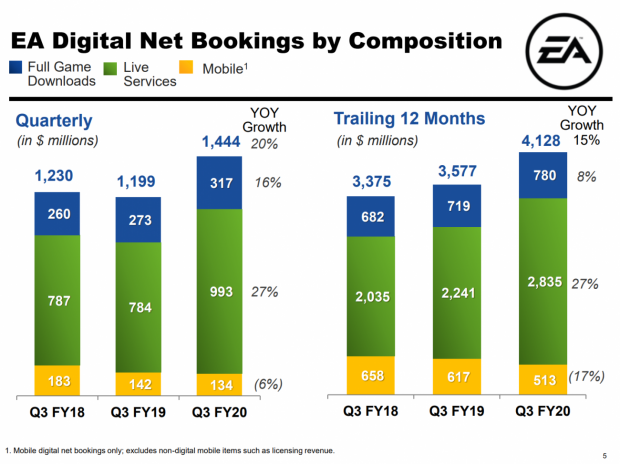Google isn't messing around with Stadia. Google just secured some of the industry's biggest billion-dollar earners for its fledgling game-streaming service.

Stadia might blow up big time, and in the best way possible. Today Google announced a huge partnership with EA to bring some of the industry's most popular and lucrative games like FIFA, Madden, and Star Wars over to Stadia. This move has tremendous implications for Stadia's long-term earnings and adoption.
EA plans to release five games across its titanic franchises to Stadia. The singleplayer-only Jedi: Fallen Order will arrive in 2020, and both FIFA and Madden will arrive by winter 2020. Whether or not the newer FIFA 21 and Madden 21 will release on Stadia wasn't confirmed. More games will launch in 2021, EA says.
The FIFA and Madden series are EA's treasured live game cash crops that routinely generate the lion's share of its yearly $2 billion microtransaction earnings. Case in point: in the holiday 2019 quarter, EA earned $1.4 billion from digital, and $993 million of that was from monetized live service games like FIFA and Madden.

Google stands to make a killing from EA's success. Like any storefront, Google will collect a portion of all games and content sold on Stadia. The split hasn't been announced, but we expect at least a 70-30 split in the publisher's favor.
This partnership is relatively low-risk for gaming's third biggest publisher. EA sees Stadia as just another storefront to sell its games (pretty much like every other publisher), and that's basically what Stadia is, a big storefront wrapped up in an instant-access gateway model.
The service sells premium games in two different ways: The free Stadia tier without a subscription where games are sold as full-price releases, and Stadia Pro, a $10 a month subscription that offers discounts on select titles. Both models access the same storefront but at different rates. Either way consumers must spend money to access the games.
There's still major deterrents with Stadia. Streaming-only means you're at the mercy of Google's servers, your own latency, and data caps (if you have them). But Google is making big moves to solve one of Stadia's critical problems at launch: The lack of quality games.


